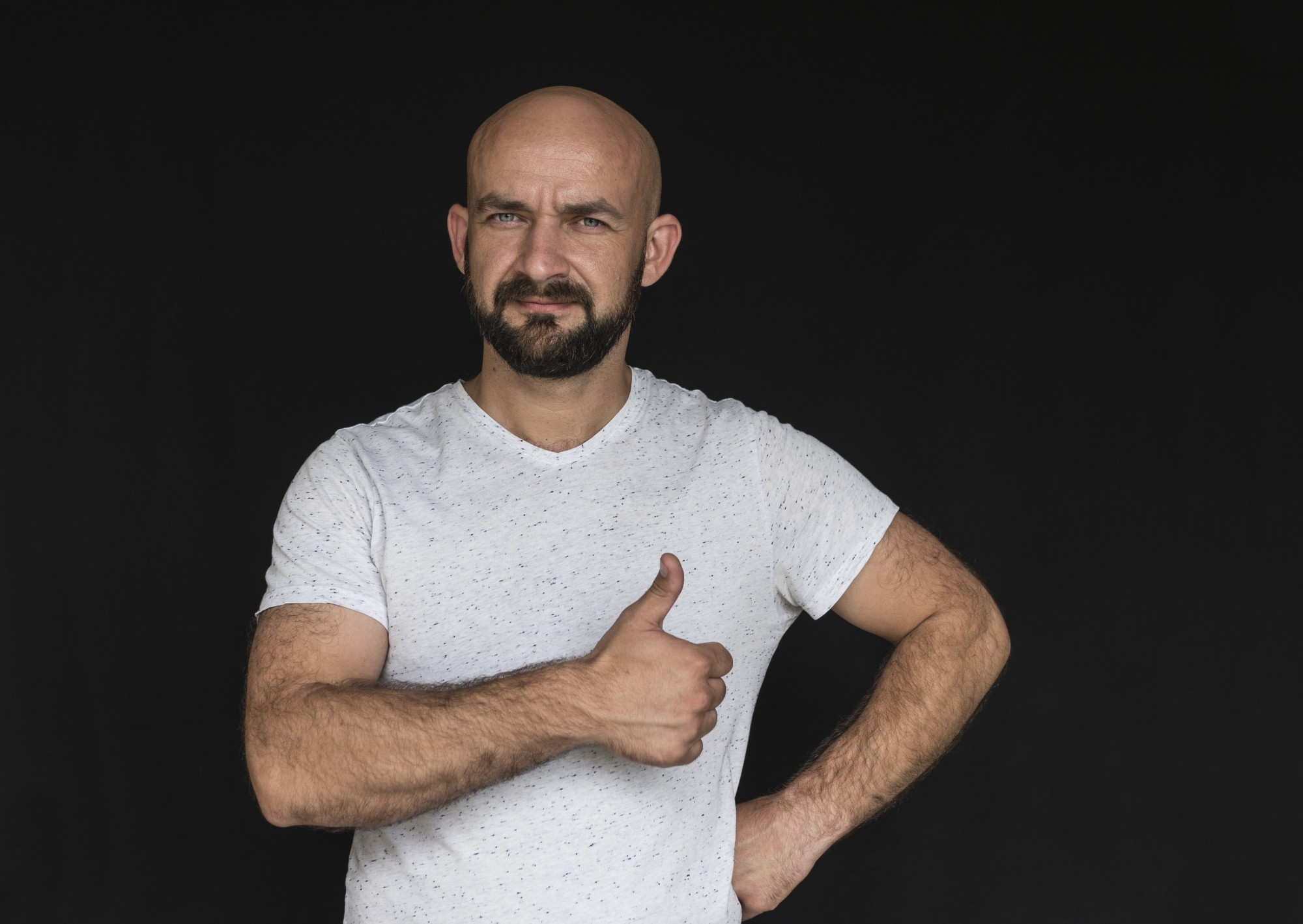Balding, also known as hair loss or alopecia, is a common condition that affects millions of people worldwide. Although balding is typically associated with aging, it can also affect younger individuals due to genetic factors, medical conditions, or lifestyle choices.
Coping with balding can be challenging, as it can affect one’s self-esteem and confidence. To learn seven ways to cope with balding, read on.
1. Acceptance
The first step in coping with balding is acceptance. Balding is a natural process, and it is not something that can be controlled.
Accepting that you are balding can help you to embrace your new look and move on. It may take some time to come to terms with your baldness, but accepting it can be a liberating experience.
2. Hairstyle
Short haircuts or shaved heads are popular options for men who are balding. These hairstyles create a clean and polished look that can enhance one’s appearance. For women, short haircuts, wigs, or hair extensions can help to cover balding spots and provide a fuller look.
3. Topical Treatments
Topical treatments such as minoxidil can help to slow down hair loss and promote hair growth. Minoxidil is a topical medication that is applied directly to the scalp. It works by increasing blood flow to the hair follicles, which can promote hair growth.
Topical treatments can be effective in treating early-stage balding, but they may not work for everyone.
4. Medication
Prescription medications such as finasteride can help slow down hair loss and promote hair growth. Finasteride works by blocking the hormone responsible for hair loss, which can help to maintain hair growth. However, it is important to consult with a healthcare professional before taking any medication, as they may have side effects.
5. Hair Restoration
Hair restoration is a cosmetic procedure that aims to restore hair growth in areas of the scalp where hair loss has occurred. There are various techniques used for hair restoration, including hair transplant surgery, scalp reduction surgery, and scalp expansion.
Hair restoration procedures can be effective in restoring hair growth, but they are not suitable for everyone and can be expensive. It is important to consult a healthcare professional to determine if any of these procedures are suitable for you. Visit hair restoration by Dr. Glat for more information and advice.
6. Lifestyle Changes
Making lifestyle changes can help to slow down hair loss and promote hair growth. A healthy diet rich in vitamins and minerals can help to nourish hair follicles and promote hair growth.
Regular exercise can help to increase blood flow to the scalp, which can promote hair growth. Avoiding smoking and excessive alcohol consumption can also help to prevent losing your hair.
7. Counseling
Counseling can help you cope with the emotional impact of balding. Talking to a counselor or therapist can help to explore one’s feelings and develop coping strategies. It can be challenging to deal with the emotional impact of hair loss, but counseling can provide a safe space to discuss one’s feelings and develop coping mechanisms.
Cope With Balding and Regain Your Pride Today
Balding can be a challenging experience, but there are several ways to cope with it. It is important to find the right coping mechanism that works for you and to seek support from healthcare professionals or a counselor if needed. With the right mindset and support, balding can be managed, and one can embrace their new look with confidence.
If you want more information and advice on topics like this, be sure to check out the rest of our site.










